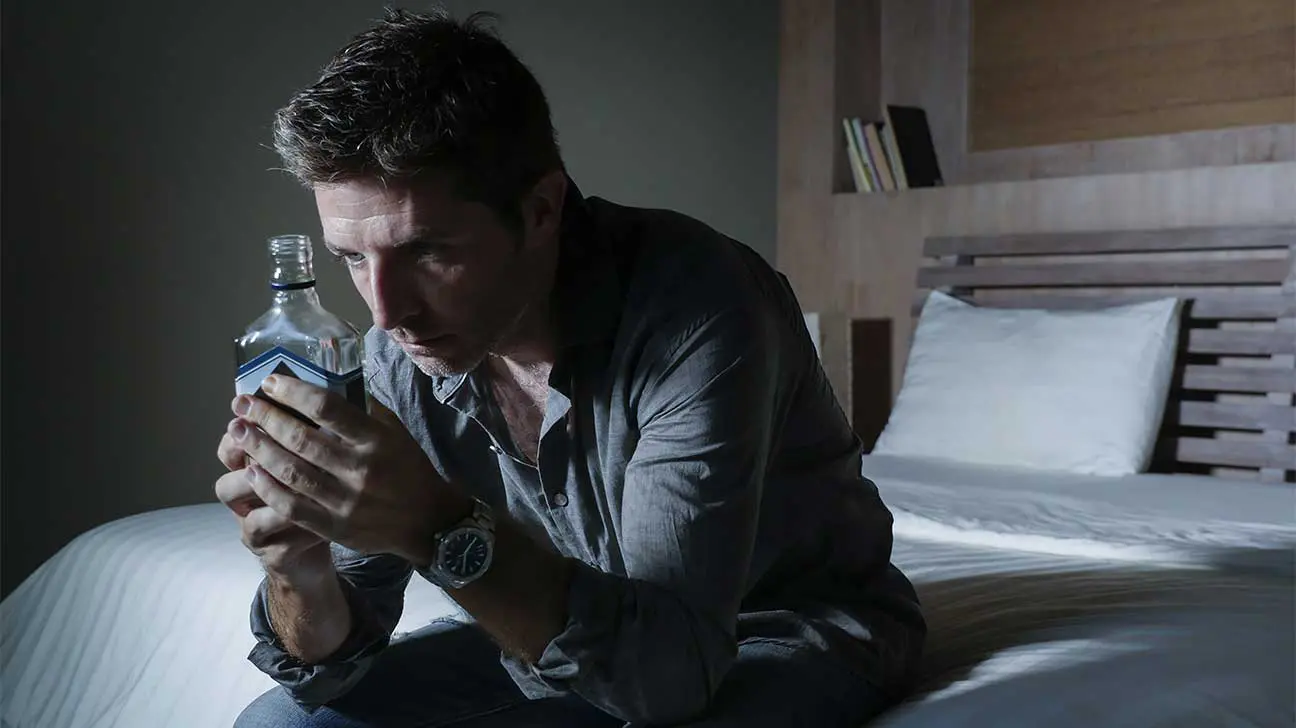
Drinking has been considered a factor in lowering inhibitions in social situations, negatively impacting impulse control, and overall increasing socialization, however, it has also been connected with a decrease in sexual performance.
There have been several studies conducted that found long term alcohol abuse leads to sexual dysfunction. Research has shown that alcohol abuse is the number one cause of impotence.
What Alcohol Does To The Body
Some would be surprised to know that alcohol is actually a depressant, it slows down reaction time and stops inhibitory functions from being active (leading to an increase in socialization and lack of impulse control). Alcohol also inhibits sexual function.
Alcohol affects different systems in the body in the following ways:
- Depresses nervous system: alcohol suppresses circulation, nerve ending sensitivity, and respiration
- Dehydration: blood flow is disrupted by dehydration, which affects oxygen and blood levels needed to elevate sensation to the genital region (resulting in vaginal dryness and contributing to erectile dysfunction)
- Disruption of orgasms
- Hormone issues: Long term alcohol abuse affects the liver, which can affect hormone levels. Disruption of testosterone can result in lowered sex drive
Long-term alcohol abuse and addiction can damage the nervous system. Nervous system impairment can result in the inability to get or maintain an erection, sometimes permanently. Permanent nerve damage can cause erectile dysfunction even in the absence of alcohol.
How Alcohol Affects Sexual Responses
Studies have shown that nearly every sexual response is affected by alcohol. Sexual responses like premature ejaculation, erectile dysfunction, and low sex drive are the most common or most reported sexual issues related to alcohol consumption.
If a person consumes alcohol regularly, it can result in a build-up of toxins in the body. This build-up of toxins has been connected to sexual dysfunction, including erectile dysfunction.
When researching individuals who are dependent or addicted to alcohol, up to 72 percent of participants experienced some form of sexual dysfunction. Additionally, the more a person drinks, the more sexual dysfunction symptoms they experience.
Reversing Sexual Dysfunction Or Erectile Dysfunction
There have been a number of studies that showed that many aspects of sexual dysfunction (some included erectile dysfunction) were able to be reversed if a person abstained from alcohol consumption.
If the body remains alcohol-free and is given time to aptly heal, the effects of alcohol do not continue to contribute to sexual dysfunction. If a person has other issues that contribute to sexual dysfunction, it may be easier for a doctor to evaluate and treat once alcohol is no longer a contributing factor.
Treatment For Alcohol Use Disorder (AUD)
When alcohol starts to negatively impact your life, it may be time to consider an alcohol abuse treatment program. Consuming alcohol in amounts that take away from your ability to enjoy your life in any aspect can be dangerous.
If you or a loved one is experiencing any of the symptoms discussed here, please consider reaching out to one of our addiction treatment specialists today. We are here, ready, and available to you or your loved one.
Addiction Resource aims to provide only the most current, accurate information in regards to addiction and addiction treatment, which means we only reference the most credible sources available.
These include peer-reviewed journals, government entities and academic institutions, and leaders in addiction healthcare and advocacy. Learn more about how we safeguard our content by viewing our editorial policy.
- Indian Journal Of Psychiatry - Prevalence of sexual dysfunction in male subjects with alcohol dependence
https://www.ncbi.nlm.nih.gov/pmc/articles/PMC2917074/ - International Journal of Impotence Research - Alcohol intake and risk of erectile dysfunction: a dose-response meta-analysis of observational studies
https://www.nature.com/articles/s41443-018-0022-x - Journal of Sexual Medicine - Health-Related Lifestyle Factors and Sexual Dysfunction: A Meta-Analysis of Population-Based Research
https://www.sciencedirect.com/science/article/abs/pii/S1743609518301243


